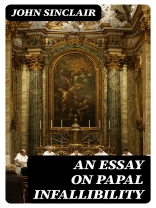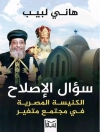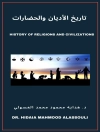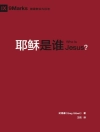In ‘An Essay on Papal Infallibility, ‘ John Sinclair presents a rigorous examination of the doctrine asserting that the Pope is incapable of error when proclaiming dogma regarding faith and morals. Sinclair employs a critical, analytical literary style that blends historical context with theological discussion, elucidating the implications of papal authority within the Catholic Church and its consequences for ecclesiastical governance. The essay situates itself amidst the intense debates of the 19th century, especially during the First Vatican Council, where this doctrine was formally defined, thus presenting a compelling synthesis of faith, reason, and authority. John Sinclair, a prominent theologian and ecclesiastical scholar of his time, brings a wealth of knowledge and personal conviction to this work. His experiences within the Catholic Church and engagement with evolving religious thought during a period marked by modern skepticism and liberal theology inform his perspective, as he seeks to reconcile traditional beliefs with contemporary challenges. Sinclair’s erudition and well-articulated arguments reflect both his commitment to Catholic doctrine and a desire for intellectual rigor in the face of modernity. This essay is highly recommended for scholars, theologians, and lay readers alike who wish to deepen their understanding of papal authority and its relevance in the contemporary world. Sinclair’s thoughtful exploration invites readers to reflect critically on the intersections of faith, authority, and morality, making it an essential read for anyone interested in the complexities of religious doctrine.
Mengenai Pengarang
John Sinclair, not to be mistaken for the plethora of authors sharing his name, is a relatively discrete contributor to the theological and philosophical discourse surrounding the doctrine of Papal Infallibility. His seminal work ‘An Essay on Papal Infallibility’ dissects one of Catholicism’s most polemical dogmas, which asserts that the Pope is preserved from the possibility of error when he solemnly proclaims doctrine concerning faith and morals. Sinclair’s essay delves into the historical, doctrinal, and theological aspects of this belief, providing readers with a nuanced understanding of its implications and the controversies it engenders. His literary style combines the analytical rigor befitting scholarly treatises with the accessibility needed to engage a broader readership interested in ecclesiastical matters. Although not as prolific as some of his contemporaries, Sinclair’s authorship of this essay places him in the ranks of niche scholars who dedicate their inquiry to specific theological issues within the Christian tradition. The absence of a broader body of work makes it challenging to ascertain the full breadth of Sinclair’s academic contributions; nevertheless, his focused exploration into Papal Infallibility marks a significant entry in the field of religious studies.




